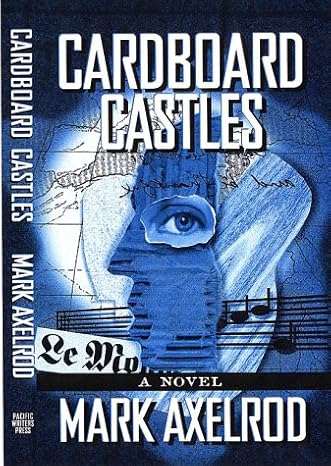Shopping Cart
-
${ item.product_title }$ ${item.price}


People are viewing this right now
"Cardboard Castles" by Mark Axelrod is an innovative and complex novel that defies traditional narrative structures, paying homage to literary giants while carving out its own unique space in contemporary fiction. Divided into 130 chapters of varying lengths and filled with diverse textual elements—such as musical notes, telegrams, and crossword puzzles—the novel challenges conventional storytelling and engages readers in unexpected ways.
At its core, the story follows Duncan Katz, a Brazilian-American navigating life across the U.S., England, and France. While the plot serves as a vehicle for Axelrod's exploration of themes like nostalgia, identity, and the nature of truth, it’s the digressions and richly diverse characters that define the narrative. Duncan encounters a range of individuals, from a homosexual gardener to an Israeli spy, each contributing to the book’s exploration of human experience and perception.
Axelrod’s prose is characterized by wit and irony, and his experimental techniques invite readers to reconsider what constitutes a novel. His blend of philosophical inquiry and playful narrative style echoes the influence of writers like Joyce and Kafka, yet Axelrod’s distinct voice ultimately emerges as a significant contribution to 21st-century fiction. The novel is a testament to the complexity of human relationships and the multifaceted nature of truth, making it a compelling read for those willing to navigate its labyrinthine structure.
First Ed, rare out of print,